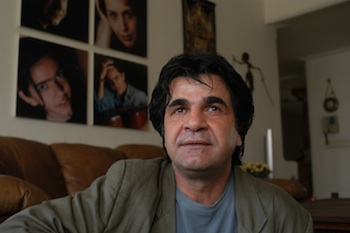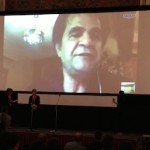You Cannot Keep the Human Spirit in Prison

By Ron Merk
The truth is impossible to hide. Ideas are the most powerful forces in the world. The human spirit can soar above all jail walls, iron bars, torture and repression. On the 4th of July, one of the most important days in the USA, the celebration of our country’s freedom from the tyranny of monarchy and the whims of a few, I heard that a filmmaker from Iran who has been a prisoner in his own home, under house arrest, and forbidden to make films or leave the country, managed to “escape” his imprisonment, even
His name is Jafar Panahi. But he has made two films since these restrictions were imposed on him, and both of the films were successfully smuggled out of the country and seen in numerous countries. Just a few days ago, Panahi managed to smuggle himself out of the country and appear at a screening of his latest film, “Closed Curtain,” at the Karlovy Vary Film Festival in the Czech Republic. Actually, his physical body was not there, but certainly his spirit was present, using Skype to talk to the audience at his screening.
The internet, Skype, and all forms of electronic communication have forever made it impossible to keep an idea prisoner, or even a person. So many forms of “escape” are now available that ultimately all dictators or totalitarian regimes can no longer contain the truth that they want so desperately to suppress.
It would seem that dictators and heads of totalitarian governments never learn this lesson. They sit on their thrones, thinking that they are omnipotent, until the day they are toppled, as all dictators ultimately are, by outside forces, internal opposition, or death.
It also seems to me that no matter how bad things get, good people will always rise about the walls of repression, and that the human spirit has an absolutely amazing spirit to soar high above the terrible things that we do to each other. I was moved and touched by the story of Panahi. As artists, we often complain about the restrictions of budget or time or resources of some kind, but it is the shortage of these things that forces us to look deeper, find ways to tell our stories using our own internal resources to make up for the shortfall.
Panahi has done this with his last three films. They are strange and unique, but they are still telling the stories that Panahi is compelled by circumstances to tell. For those of us making films for a living or because of a fire in the belly, this is an object lesson to stop complaining, and go out there and make the films for which we have a passion.





